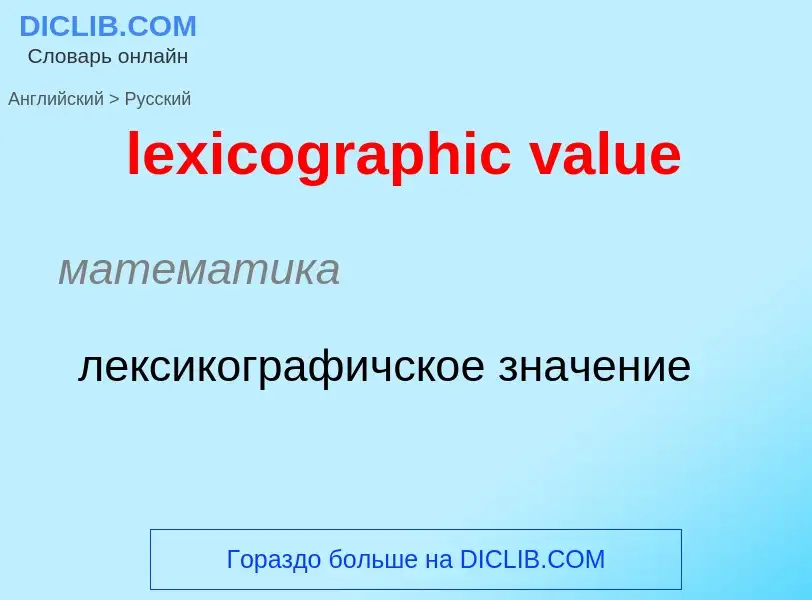Traducción y análisis de palabras por inteligencia artificial ChatGPT
En esta página puede obtener un análisis detallado de una palabra o frase, producido utilizando la mejor tecnología de inteligencia artificial hasta la fecha:
- cómo se usa la palabra
- frecuencia de uso
- se utiliza con más frecuencia en el habla oral o escrita
- opciones de traducción
- ejemplos de uso (varias frases con traducción)
- etimología
lexicographic value - traducción al ruso
математика
лексикографичское значение
[vælju:'ædid]
бухгалтерский учет
добавленная стоимость (разница между ценностью продукции фирмы или отрасли и стоимостью сырья, комплектующих изделий и услуг (кроме рабочей силы, платы за землю), приобретаемых для обеспечения выпуска этой продукции)
статистика
условно-чистая продукция
экономика
стоимость
добавленная обработкой
условно чистая продукция
синоним
бухгалтерский учет
создание добавленной стоимости (деятельность по улучшению продукта или услуги или по повышению стоимости продукта или услуги, за которую покупатель готов заплатить)
Смотрите также
Definición
Wikipedia
In economics, lexicographic preferences or lexicographic orderings describe comparative preferences where an agent prefers any amount of one good (X) to any amount of another (Y). Specifically, if offered several bundles of goods, the agent will choose the bundle that offers the most X, no matter how much Y there is. Only when there is a tie between bundles with regard to the number of units of X will the agent start comparing the number of units of Y across bundles. Lexicographic preferences extend utility theory analogously to the way that nonstandard infinitesimals extend the real numbers. With lexicographic preferences, the utility of certain goods is infinitesimal in comparison to others.

